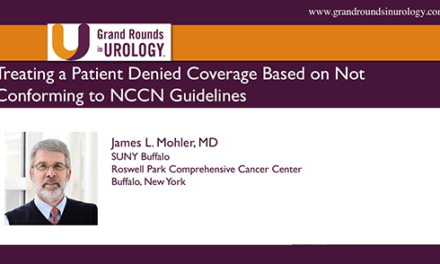
PCa Commentary | Volume 180 – August 2023
Posted by Edward Weber | August 2023
DIGITAL PATHOLOGY AND ARTIFICIAL INTELLIGENCE: A Review of
A Seminal Study Advancing the Precision of Patient Management
Background
Ever since 1675 when the Dutch lens maker, Leeuwenhoek, looked down the newly invented microscope at rainwater and reported seeing ‘animalcules – tiny dancing creatures” (bacteria), pathologists have been similarly looking down their scopes and guiding prostate management by applying their expertise in pattern recognition.
In the 1960s, Dr. Donald Gleason organized those patterns into doublets of 3, 4 (i.e., 3+4) and 5 to create the prognostic Gleason Score — now further refined. Anthony D’Amico, professor of Radiation Oncology at Harvard Medical School is credited for establishing prognostic categories segregating “risk of recurrence” into low-, intermediate- and high-risk prostate cancer (with intermediate-risk now subdivided into favorable” and “unfavorable.”)
[Google reminds us that “A prognostic biomarker provides information about the patient’s overall cancer outcome, regardless of therapy, whilst a predictive biomarker gives information about the effect of a therapeutic intervention.”]
Feng, Spratt et al., have now advanced the art by generating a personalized precision predictive model by utilizing large data sets, machine learning and the less human-dependent “deep learning” — both components of artificial intelligence. Their analysis was directed toward discovering a biomarker that can predict which men with intermediate-risk prostate cancer benefit from the addition of ADT to radiotherapy.
Their study found that some men gained much, but others only minimally. Previous data has found that only 60% of men with intermediate-risk cancer benefit from the addition of ADT to radiotherapy — although those with “unfavorable” intermediate-risk benefit more so. The challenge was identifying who benefits and who does not.
The Spratt AI Study
“Artificial Intelligence Predictive Model for Hormone Therapy Use in Prostate Cancer,” NEJM Evidence, June 29, 2023., by Dr. Daniel Spratt with many collaborators on behalf of NRG Prostate Cancer AI Consortium.
Dr. Spratt: “With the first-ever predictive biomarker of ADT benefit in prostate cancer, created with AI, we are able to further realize the ability to create a personalized approach for the treatment of cancer.” (Quoted in Precision Medicine News, 2023).
The study was based on “digitized pathology images of pretreatment prostate tissue and clinical data of 5727 patients enrolled in 5 phase 3 randomized trials in which treatment was radiotherapy with or without ADT.” The goal was to develop a binary model to predict the benefit from short-term ADT regarding the likelihood of developing distant metastases.
The article notes that androgen deprivation therapy (ADT) is customarily combined with radiation treatment in this setting. These were trials of radiation treatment for higher grades of prostate cancer, in which there are “no validated predictive models to guide its use.”
Spratt’s colleagues endeavored to establish such a guide – a binary determinant for men with localized intermediate-risk cancer predicting whether “a given patient will benefit from ADT or not“ based on the risk of time to developing distant metastases. They generated such a model by analyzing 4 major randomized clinical trials comparing radiation therapy alone or combined with ADT.
“Data from these trials were acquired and digitized and then were used to train a predictive AI model” to predict the differential benefit of ADT according to their biomarker status. Their image extraction method was described: “For each patient, the tissue across all available digital slides was divided into 256 x 256-pixel patches. … [and the] model was trained on image patches using self-supervised learning. Over 2.5 million tissue patches across four trials … were fed through the model 200 times to train the model.”
The next step was to take this predictive model and validate it using data from RTOG trial 9408 which randomized men with intermediate-risk cancer to radiation treatment plus or minus 4 months of ADT. By applying the AI-derived model, the 15-year estimate for developing distant metastases for biomarker-positive patients treated with ADT was 4% v 14.4% for biomarker-negative ADT patients. In developing their biomarker, they found the best cut-point was 67% for segregating biomarker-positive from biomarker-negative.
By applying the biomarker established in the development model, 543 men were biomarker-positive, indicating that ADT “significantly reduced (by 10.5 percentage points) the risk of distant metastases at 15 years compared to radiotherapy alone.” For 1051 biomarker-negative patients ADT conferred minimal benefit (percentage point benefit 0.5%). For prostate cancer-specific mortality, the comparison of benefits was 10.2% and 1.2%, respectively.
Dr. Spratt concluded, “Our AI-based predictive model was able to identify patients with a predominantly intermediate risk for prostate cancer likely to benefit from short-term ADT.” In an interview with ‘News Wise’ Dr. Spratt said: “We are fortunate to be already offering this test at UH Seidman Cancer Center, Case Western Reserve University, to our patients from Northwest Ohio, our nation, and around the world.” (Quoted in News Wise, June 2023)
BOTTOM LINE
The article reviewed in this Commentary is a prime example of how Artificial Intelligence can benefit the clinical management of prostate cancer.
From Artera.ai: “The ArteraAI Prostate Test is a Laboratory Developed Test that is now clinically available through a single CLIA-certified laboratory in Jacksonville, FL. Clinicians who would like to order the ArteraAI Prostate Test can contact us at support@artera.ai. Soon after, a member of our Customer Success team will reach out to set up an account in the ArteraAI Portal to enable order submission.“
Your comments and requests for information on a specific topic are welcome e-mail ecweber@nwlink.com.
Please also visit https://prostatecancerfree.org/prostate-cancer-news for a selection of past issues of the PCa Commentary covering a variety of topics.
“We appreciate the unfailing assistance of the librarians at Providence/Swedish.”
ABOUT THE AUTHOR
Edward Weber, MD, is a retired medical oncologist living in Seattle, Washington. He was born and raised in a suburb of Reading, Pennsylvania. After graduating from Princeton University in 1956 with a BA in History, Dr. Weber attended medical school at the University of Pennsylvania. His internship training took place at the University of Vermont in Burlington.
A tour of service as a Naval Flight Surgeon positioned him on Whidbey Island, Washington, and this introduction to the Pacific Northwest ultimately proved irresistible. Following naval service, he received postgraduate training in internal medicine in Philadelphia at the Pennsylvania Hospital and then pursued a fellowship in hematology and oncology at the University of Washington.
His career in medical oncology was at the Tumor Institute of the Swedish Hospital in Seattle where his practice focused largely on the treatment of patients experiencing lung, breast, colon, and genitourinary cancer and malignant lymphoma.
Toward the end of his career, he developed a particular concentration on the treatment of prostate cancer. Since retirement in 2002, he has authored the PCa Commentary, published by the Prostate Cancer Treatment Research Foundation, an analysis of new developments in the prostate cancer field with essays discussing and evaluating treatment management options in this disease. He is a regular speaker at various prostate cancer support groups around Seattle.




